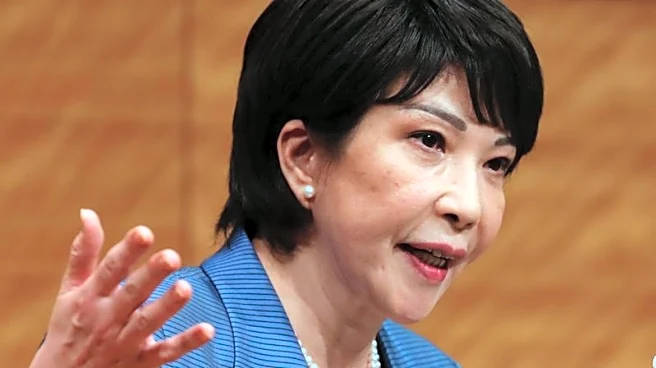What's Happening?
President Donald Trump and Israeli Prime Minister Benjamin Netanyahu have met at the White House to discuss a new 21-point peace plan aimed at resolving the Gaza conflict. The plan, which has been shared with Arab partners, seeks to normalize Israel's ties with the region and includes provisions for an International Stabilization Force and a gradual Israeli withdrawal from Gaza. The proposal also envisions a temporary governance structure for Gaza, led by an independent committee of Palestinian experts, with the ultimate goal of transferring power to the Palestinian National Authority.
Why It's Important?
This meeting is significant as it underscores the U.S. administration's commitment to resolving the Gaza conflict and promoting regional stability. The plan's emphasis on a potential Palestinian state marks a notable shift in U.S. policy and could influence future diplomatic relations in the Middle East. The proposal's success could enhance U.S. influence in the region and contribute to a lasting peace. However, the plan faces challenges, including opposition from Israeli coalition members and skepticism from Palestinian groups.
What's Next?
The success of the peace plan will depend on the willingness of all parties to engage in negotiations and make concessions. The international community, particularly Arab nations, will play a crucial role in supporting the plan's implementation. The U.S. will need to navigate complex political dynamics, both domestically and internationally, to ensure the plan's viability. Continued diplomatic efforts and potential adjustments to the plan may be necessary to address concerns and achieve consensus.












